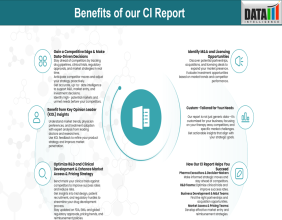Highlights
- S. Charges Two Russian nationals face charges for operating a crypto mixer used by North Korean hackers.
- North Korean Ties The mixer was allegedly used to launder funds from cybercrime operations linked to North Korea.
- Cybersecurity Concerns This case highlights ongoing efforts to combat illicit crypto activities and cyber threats.
The United States has brought charges against two Russian nationals for their involvement in running a cryptocurrency mixer that allegedly facilitated cybercrime activities linked to North Korea. The mixer, which is a service that anonymizes cryptocurrency transactions, is said to have been used by hackers with ties to the North Korean regime to launder stolen funds. This marks the latest development in the ongoing global crackdown on illicit cryptocurrency operations and cybercrime.
The Role of Crypto Mixers in Cybercrime
Crypto mixers, also known as tumblers, are services that obscure the origins and destinations of cryptocurrency transactions, making it more difficult to trace the flow of funds. While such tools can be used for legitimate privacy purposes, they have also become a popular method for criminals to launder money. In this case, U.S. authorities have linked the mixer to North Korean cybercriminals, specifically those involved in a series of high-profile cyberattacks aimed at stealing cryptocurrency from exchanges and other financial institutions.
The charges against the two Russian individuals highlight the increasing concern over the role of cryptocurrencies in facilitating illicit activities. North Korea, in particular, has been accused of using cybercrime as a means of bypassing international sanctions and funding its regime. The country's hackers have been linked to numerous attacks on financial institutions, including the infamous 2017 WannaCry ransomware attack.
North Korea's Involvement in Crypto-Related Cybercrime
North Korean state-sponsored hackers have long been accused of using cryptocurrency to finance their operations, including hacking into cryptocurrency exchanges, launching ransomware attacks, and stealing funds from digital wallets. The stolen funds are often laundered through mixers to conceal their origin and make it more difficult for authorities to trace the money back to the original theft.
These criminal activities have raised alarms among cybersecurity experts and governments worldwide, as they highlight the growing intersection between digital currencies and organized crime. By using mixers and other obfuscation techniques, hackers can move stolen assets across borders and evade detection, further complicating efforts to combat cybercrime and illicit financial flows.
Global Crackdown on Illicit Crypto Activities
The charges against the Russian nationals are part of a broader effort by the U.S. and other international authorities to clamp down on illicit cryptocurrency operations. In recent years, the U.S. government has increasingly focused on regulating crypto mixers and other privacy-enhancing tools that are used for money laundering, ransomware, and other illegal activities.
As part of this initiative, the U.S. Department of Justice has sought to identify and disrupt the networks that enable these illicit operations, and has imposed sanctions on several entities associated with North Korean cybercrime. This case serves as a reminder of the growing scrutiny on the crypto industry and the need for stronger regulatory oversight to prevent misuse.
The charges against the two Russian nationals for operating a crypto mixer linked to North Korean cybercrime underscore the evolving nature of digital threats and the role of cryptocurrencies in facilitating illicit activities. As the global community continues to grapple with the challenges posed by cybercrime, regulatory measures will likely become more stringent, and efforts to disrupt criminal operations will intensify. The increasing use of cryptocurrencies by state-sponsored hackers highlights the need for continued vigilance and international cooperation to combat this emerging threat.




